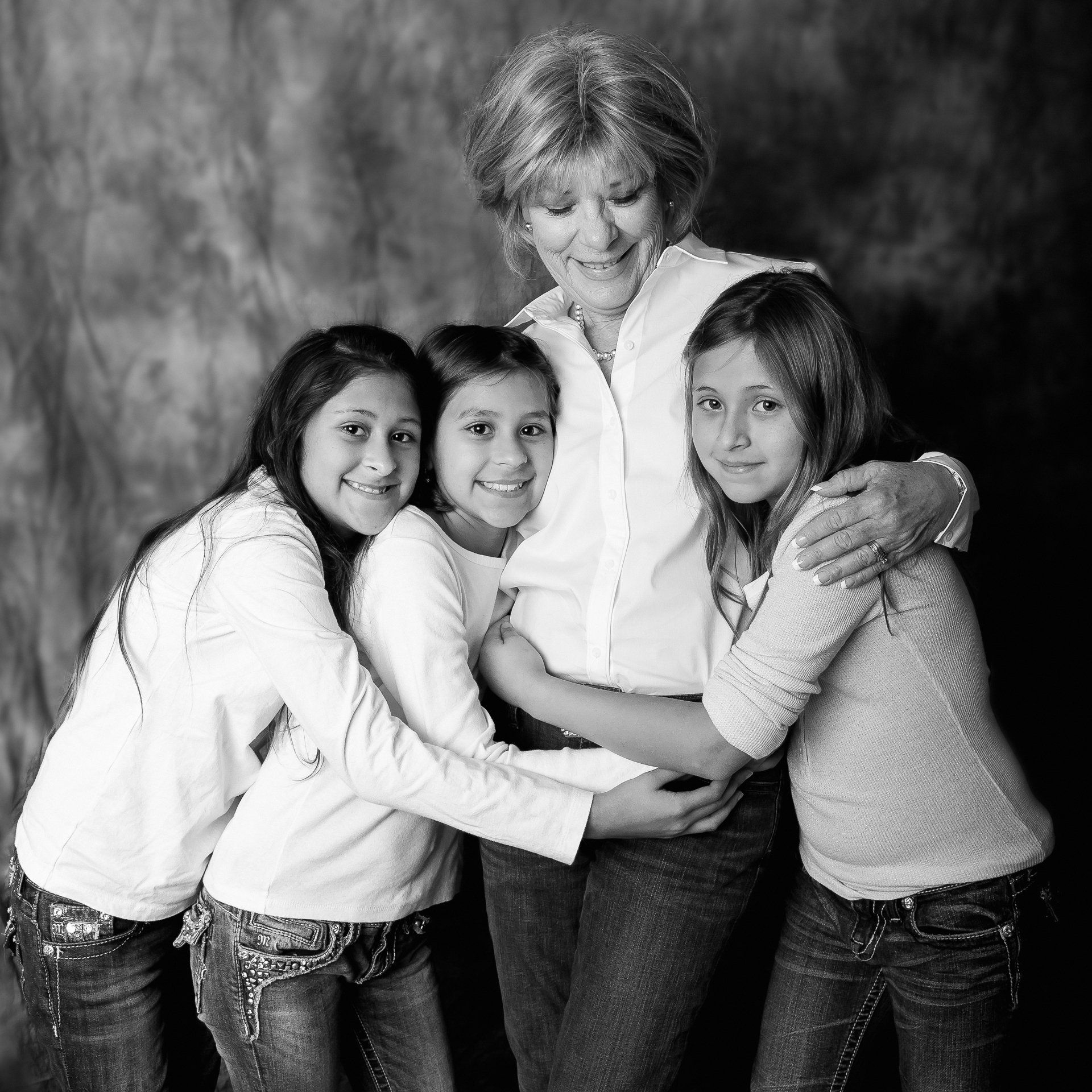Story of Hope: Nancy Maloy
Advocate Impact Story
Nancy Maloy entered the lives of sisters: Michelle, Amber and Aubrey in April 2020, just as the pandemic began. The girls were in the care of CPS for neglectful supervision by their mother due to illegal substance abuse and mental health needs. Michelle's father was deceased and the youngest girls' father was incarcerated, with an unknown release date. Michelle, being the eldest, was used to being the "parent' for her siblings and at times for her mother as well.
At first, Nancy was unsure how to proceed and establish a positive rapport with the girls as visits were virtual and by telephone. The girls were in a shelter and it was difficult to get a hold of the three at the same time. Nevertheless, Nancy called weekly and soon the girls were looking forward to her phone calls. During their phone calls, Nancy would ask Michelle if she knew of relatives that could care for them, and was provided with a distant cousin's name. She relayed the information to the caseworker, a home study was completed and approved, and the girls were soon placed with their "Tia", as they called her. As time progressed, Nancy began visiting the girls, doing porch drop offs of items needed. Once restrictions were lifted to include in-home visits, Nancy would take dinner and attend Michelle's soccer games, as they were outdoors.
Nancy worked closely with service providers on the case, including the girls' teachers, therapists and kept their attorney informed of all happenings. She visited with Michelle after knee surgery and encouraged her to continue with Soccer, as this was her passion. She also helped Michelle enroll in a credit recovery program, as she found out through Michelle's school counselor she was missing several credits due to excessive absences the year prior. With Nancy's guidance, Michelle was enrolled in the College Docket program and this has set up a pathway to college for her. As of the beginning of this school year, Michelle is caught up with credits and on target with her cohort to graduate this spring. Nancy was also very involved with the youngest girls' school grades. The girls attended a private school their Tia worked at, and enjoyed returning to in-person classes.
While the girls were doing great, their mother unfortunately was not. Mother was not in compliance with services and things were not looking good. Michelle knew what was happening, as she had frequent phone contact with her mother. Nancy continued to be a constant in their lives and was present when the caseworker and ad-litem discussed the possibility of their mother losing her rights to them and being adopted by their caregiver. Nancy comforted the girls and let them know things would be ok; she would be there through the trial and after the outcome. She constantly reminded them they were safe and loved.
Soon after the trial, the girls Tia had a personal matter arise and let the caseworker know she would not be able to adopt Amber and Aubrey, but could still be a permanent placement for the girls. With this news, Nancy and the caseworker reached out to the girl’s paternal grandmother who had come forward at the beginning of the case to care for them. Grandmother was initially not seen as the first placement option as she lived 5 hours away and could only take the youngest girls, and not Michelle. Michelle did not want to be separated from her sisters. Now that a whole year and a few months had passed, the girls had adjusted to stability and routine. Nancy, the caseworker and ad-litem felt placement with their grandmother was the only way to give the girls permanency. This scared Michelle as she had always felt she had to protect her sisters. With the support of her therapist, Nancy, her attorney, and caseworker- Michelle realized this was the best decision for her sisters, as they could obtain a permanent and safe home with family. Michelle agreed to remain with her Tia and will go to college next year. Michelle's condition for staying in care, as she was now 18, was to be allowed frequent visits and virtual contact with her sisters. At a special hearing set by their attorney, Nancy recommended the girls be placed with their grandmother and the adoption proceed, with the condition Michelle be allowed visits and virtual contact. The girls' attorney, CPS and the grandmother all agreed. Before the girls were moved, Nancy ensured the placement was safe and secure and spoke with the grandmother on several occasions, letting her know how close the girls were and the importance visits between them would be.
The girls have now been with their grandmother for two months and are doing well. Michelle is currently a senior in high school and is on track to graduate. She has visited college campuses and will be submitting applications in the upcoming months. All the while, Nancy has been their biggest supporter and has stated she will continue to be in their lives for years to come.









